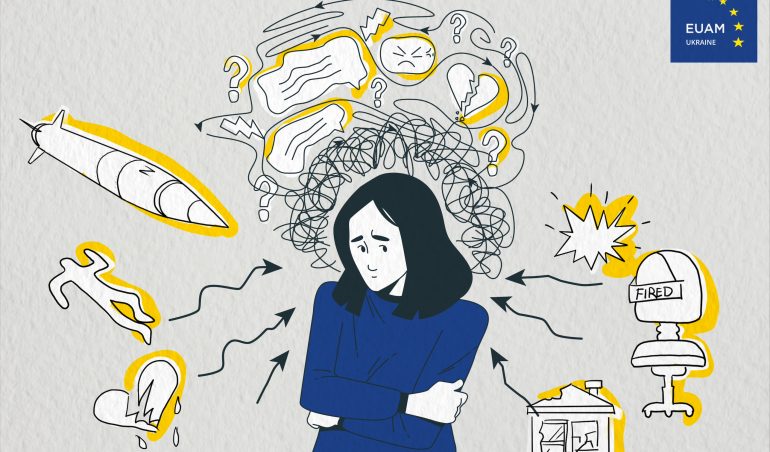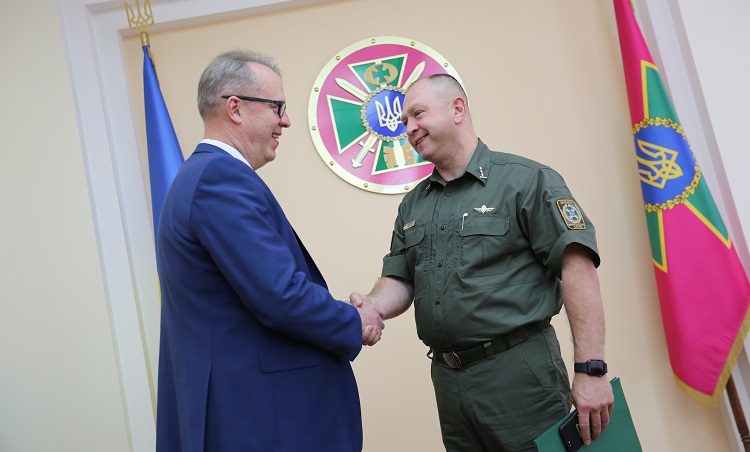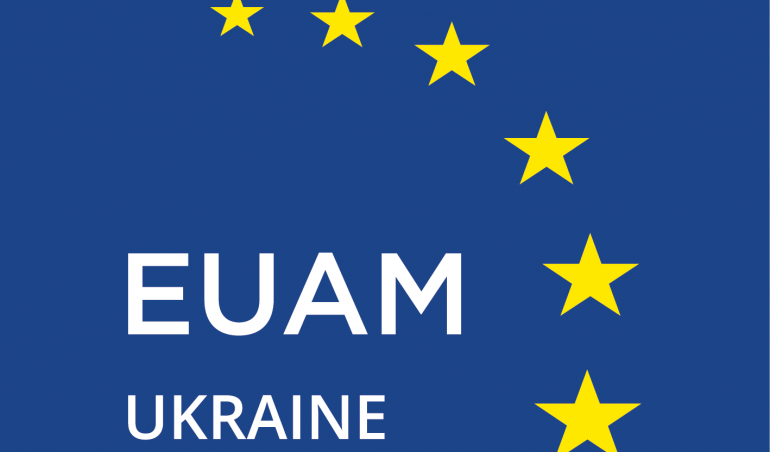Mental Health: EUAM supports its Ukrainian partners in dealing with the psychological costs of war
October 17, 2022
EUAM advises and supports its counterparts’ human resources offices and educational institutions in strengthening their response and systems in mental health
Like many other Ukrainians, the civilian security sector staff and their families have been facing many negative effects, including psychological, since the war started. In close coordination with its Canadian partners, the EU Advisory Mission Ukraine (EUAM) decided to advise and support its counterparts’ human resources offices and educational institutions in strengthening their response and systems in mental health.
The Russian invasion has inflicted widespread suffering on Ukrainian civilians and military personnel. The burden of the war and the traumatic events happening in Ukraine will have long-lasting adverse effects on the psychological well-being of people in Ukraine. They may lead to increased mental health problems, including anxiety, depression, loss of interest and motivation, misuse of addictive substances, and post-traumatic stress disorder.
The ongoing war increased the pressure on all law enforcement agencies and their staff, often exposing them to traumatic events or witnessing an event that happened to someone else. Many Ukrainian agencies in the civilian security sector need to increase the resilience of their personnel, support staff motivation and provide them with indispensable psychological help, which directly impacts employees’ efficiency and productivity.
With the proposed “Post-War and Transition Phase Support” project, EUAM stands next to its civilian security sector partners, especially with activities in the area of human resources and people management and psychological assistance during the war.
These project activities will include sharing information packages and advice based on EU and international experience and best practices in people management and psychological assistance, organising awareness-raising sessions for leaders and managers, informative sessions on stress management for phychologists and sessions on critical incident stress management for staff in law enforcement agencies, creating and distributing videos, booklets/leaflets on consequences of stress and trauma and practical guidelines for managing psychological and social well-being.




